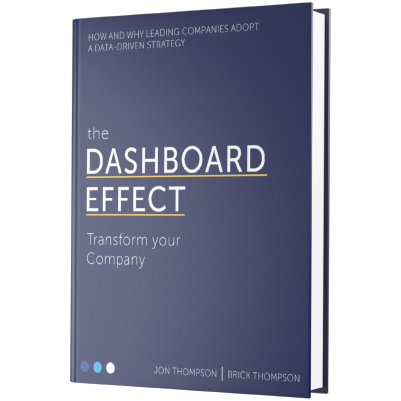Apparently, we should blame Hans Jakob Christoffel von Grimmelshausen for the offense.
A satirical novelist in 17th Century Germany, Hans wrote the now-timeless work, Simplicissimus. This book included the first use in print of the derogatory term erbsenzähler—a German word that translates “bean counter.” Over the next 450+ years, “bean counter” has been cemented in our minds as an image of a pedantic accountant so obsessed with pinching pennies, they miss opportunities to make millions.
All due respect to Herr Grimmelshausen, but 21st Century finance professionals do so much more than simply tally beans. These skilled analysts turn raw data into a strategic asset that empowers businesses to succeed. In the mid-market Distribution industry alone, a crack team of “bean counters” can make a significant impact that propels growth, corporate culture, and job creation in any economy.
Here are three reasons why.
- Reason #1: Analysts Deliver Reliability
- Reason #2: Analysts Keep Product Flowing
- Reason #3: Analysts Drive Sales
Reason #1: Analysts Deliver Reliability
The CEO Genome Project was a wide-reaching study of modern business management. Conducted over 10 years by consulting firm, ghSmart, researchers first collected “a database of assessments of 17,000 C-suite executives—including more than 2,000 CEOs” from all major industry sectors. Next, ghSmart assembled of a team of psychologists, economists, statisticians, financial market experts, and data scientists. Then they set out to discover exactly which qualities were the definitive, measurable predictors of CEO success. When all was said and done, the massive, decade-long study found that only four key abilities separated high-performing CEOs from the rest of the group. At the top of that list was:
Reliability.
“Mundane as it may sound,” the CEO Genome Project reports, “the ability to reliably produce results was possibly the most powerful of the four essential CEO behaviors. In our sample, CEO candidates who scored high on reliability were twice as likely to be picked for the role and 15 times more likely to succeed in it.”
How did those successful CEOs “reliably produce results” for their companies? They depended on “bean counters” to aggregate and optimize their data for decision-making.
According to researchers, high-performing CEOs “established business management systems that included … dashboards of metrics, clear accountability, and multiple channels for monitoring performance and making rapid course corrections.” In short, they implemented daily use of data intelligence tools like Distribution HQ™, a solution set that measures critical KPIs in real time, informs strategic decision-making, provides actionable insight to ensure customer satisfaction, and guarantees reliability of leadership and operations.
So hail to the bean counters who keep data intelligence just a click away from their executive teams. Without those people, most CEOs would quickly falter and fall behind the competition in their respective industries.
Reason #2: Analysts Keep Product Flowing
Amidst all the instability caused by the 2020 Coronavirus pandemic, one lesson stood clear:
When distribution lines are disrupted, Americans will hoard toilet paper.
It’d be funny, except we all saw it happen—and not just with consumable household goods. In healthcare, manufacturing, retail, industrial services, and more, failures in inventory forecasting, issues awareness, and supply-chain reliability thrust distribution companies into the harsh spotlight of national outrage. We the People, it seems, have been spoiled by the superlative systems our distributors have created. When one of those systems hits a roadblock … it also hits the fan.
This is why “bean counters” are so critical to mid-market business, particularly when it comes to distribution. From supply chain to fulfillment to service-level management, these folks use data-driven accountability to facilitate better control over every stage in the shipment lifecycle. Every day, for every industry, they’re tracking relevant metrics such as fill rates and service levels against forecasted demand and other benchmarks, making it possible for you and me to go through a week blissfully unaware of how we got what we use.
Not only that, distribution companies are using data to get even better. Dr. Matt Dunn is director of the project management office at data intelligence company, Blue Margin Inc. He reports that current data strategies can significantly impact a distributor’s ability to track and optimize product flow. For example, he says, a data visualization dashboard can utilize an inventory-aging report to maximize opportunity and limit losses. Dunn explains:
An inventory-aging report, whereby all products in the organization’s possession are aggregated, is essential. It can separate product into aging categories and identify slow-moving and “graveyard” inventory. Metrics can be built around most profitable items calculated by gross margins and inventory turns. Built-in top 20 lists can show at a glance what product is moving at various rates—and what’s sitting, with those items sorted by largest sunk cost.
The time to prepare for a national emergency isn’t when the pandemic hits—it’s months and years before. So, hail to the bean counters who are, right now, tracking and acting on data related to inventory aging and velocity, supply and demand, product mix, stock forecasting, and all the other necessary metrics to keep us within arm’s reach of any product we desire, anytime.
Reason #3: Analysts Drive Sales
“Float like a butterfly, sting like a bee. His hands can’t hit what his eyes can’t see.”
Legendary heavyweight boxer, Muhammad Ali made that epic pronouncement in 1974, before his unforgettable “Rumble in the Jungle” against the previously unbeaten, George Foreman. With history behind us and his successful career in the books, it’s no surprise today that Ali bested Foreman, knocking him out in the eighth round. What is surprising is that some mid-market companies have yet to learn the truth that Muhammad Ali so brashly delivered in 1974:
Your sales team can’t hit targets that they can’t see.
Lack of visibility into key metrics that impact sales success is more than just a frustrating obstacle, it’s a potential knockout punch that can actually doom a sales team to failure despite everyone’s best intentions.
Jon Thompson, author of the groundbreaking business intelligence book, The Dashboard Effect, points out: “Product information is not enough to support your sales effort. Sales teams also need real-time insight to promote products that are available, high-margin, and the best fit for customer needs. They need easy access to customer history, buying patterns, and satisfaction measures.”
Enter the analyst to save the day.
Using accessible analytic tools like Microsoft Power BI or Tableau, your favorite “bean counters” put key performance metrics up in lights for everyone, from the Sales VP down to territory reps and inbound call center staff. With that critical knowledge front and center, people can then focus on the highest-return priorities when engaging in the sales transaction. For instance:
- “I see you’ve bought this product before. Would you like to increase the quantity this time?”
- “Many of our customers like to combine Product B with Product A. Would you like to add that to your order?”
- “Product WW84 has a near-perfect satisfaction rating among our industrial clients. Do you want to try it as well?”
And pretty soon, sales revenue ticks up, your company gains better financial footing and cultural health, employees keep jobs, and customers are thrilled with your service. Your company wins. So today, let’s shrug off the von Grimmelshausen fallacy once and for all. Fact is, when data-driven “bean counters” get involved, everyone benefits. So …
Hail to the bean counters!
Three Key Thoughts:
- “CEO candidates who scored high on reliability were twice as likely to be picked for the role and 15 times more likely to succeed in it.”
- “We the People, it seems, have been spoiled by the superlative systems our distributors have created. When one of those systems hits a roadblock … it also hits the fan.”
- “What is surprising is that some mid-market companies have yet to learn the truth that Muhammad Ali so brashly delivered in 1974: Your sales team can’t hit targets that they can’t see.”

